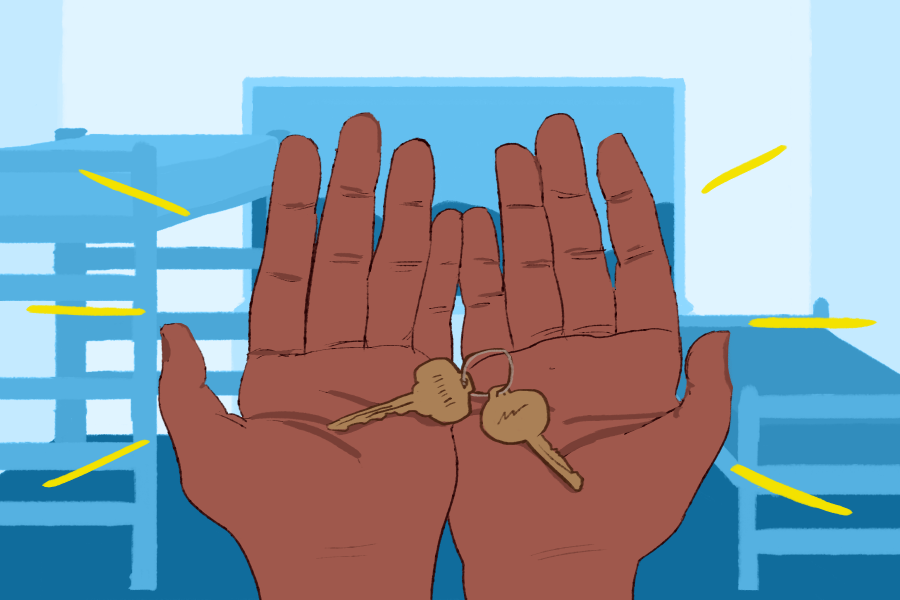The fall 2020 semester will see three multicultural Living Learning Communities moving to Pioneer Hall.
The transfer of Charlotte’s Home for Black Women, Huntley House for African American Men and Tsev Hmoob, a coed LLC for Hmong students, to Pioneer Hall could signal the University’s reckoning with over 20 years of segregation at the residence hall into the mid-1900s.
These LLCs — along with the American Indian Cultural House and the CASA SOL LLC — are managed by the Multicultural Center for Academic Excellence and currently housed in several different residence halls around campus. MCAE director Fernando Rodriguez says he hopes to have all five LLCs housed in Pioneer Hall by fall 2021.
Students ask for more support
The LLCs aim to provide an exclusive living space for students looking to surround themselves with others who have shared identities.
“As an incoming first-year student at a predominantly white institution, finding people that look like you, understand your way of life and allow you to be your most authentic self at all times isn’t always easy to find. But Huntley House allowed me to do just that,” said Huntley House alumnus and community advisor Nathnael Taye.
Students have expressed some hesitation about leaving the legacies of the former housing locations, but some say that it is the people, not the place, that made their experience in the LLC what it was.
Charlotte’s Home alumna Nautica Flowers is happy to see Black LLCs moving to Pioneer Hall, but they will be moving there with a host of ongoing challenges. Flowers said she felt that spaces reserved for Charlotte’s Home students were not respected by the other LLCs at 17th Avenue Residence Hall, which led to confrontations where Black female students were “demonized.”
“Huntley and Charlotte’s had to have a whole mediation,” Flowers said. “[Housing and Residential Life] was not helpful in that at all because Huntley didn’t even have a leader at that time. None of the problems actually got resolved, and the relationship between Huntley and Charlotte after that was very damaged. … It’s just like Charlotte’s Home was clearly an afterthought to everyone in HRL and everyone in MCAE.”
MCAE has struggled with a lack of resources and inconsistent leadership in the past few years, which has negatively impacted the multicultural LLCs. Students also have often spoken about feeling tokenized by the University through MCAE.
Each of the three LLCs has gone without full-time staff support for at least a year. Taye, who has been involved with Huntley House for about two years, said the lack of structure has contributed to cultural issues among young Black men in the LLC.
“One thing that was hard to deal with was that the image of ‘Huntley men’ wasn’t always the best,” Taye said, referring to toxic Black masculinity and a lack of accountability. “Huntley House has had nearly six advisers within seven to eight years alone. There has not been any sort of consistency when it comes to the programming provided for respective cohorts that come into Huntley House yearly. This in itself also manifests a culture where things are pretty much going unchecked and [the LLC] continues to fall into pieces.”
Many students said they were lured by the academic and community opportunities MCAE advertised but were disappointed by its shortcomings.
“Especially when the pandemic unfolded, some of the concerns that I got about the LLC specifically made me pause. … I have met with students in Huntley and Charlotte’s who have basically said, ‘MCAE used me as a token, and you abandoned me,’” said MCAE Director Rodriguez.
According to students, Tsev Hmoob was more independent from MCAE and less affected by associated challenges.
“I feel like [the LLC] didn’t really interact with MCAE that much,” said Tsev Hmoob member Lisa Lee. “Everybody was doing their own thing. However, MCAE does help when we need help.”
Rodriguez said MCAE is aware of some of the structural issues within the LLCs and hopes to bring positive change under his leadership.
A building with racist beginnings
Built in two phases in the 1930s, construction began on Pioneer Hall in 1928, making it the first mens’ dormitory on the Twin Cities campus.
Several Black students were denied housing at Pioneer Hall until the admittance of John Pinkett Jr. in 1931, according to the A Campus Divided exhibit at the University. He paid for a room in the building and spent one night in it before being removed and recommended to the Phyllis Wheatley House, a North Minneapolis settlement house for Black people several miles from campus.
Following years of student activism and an administration change, University President Guy Ford ended housing segregation in 1937, but his policies were largely undone under President Walter Coffey in 1941.
Coffey then created the International House specifically for Black students. The residence hall was later shut down by the director of Pioneer Hall after he found that residents had rejected segregation and were integrating themselves.
Students resisted segregation more fervently during World War II, and administration received letters comparing campus segregation to Nazi policies. Despite promises from Coffey’s administration to integrate, Pioneer Hall specifically became a segregation stronghold, remaining open to white male students only.
Finally, in 1954, segregation was officially stopped at the University of Minnesota by the faculty governance of the University Senate.
“I also think it is really powerful that these LLCs are going into Pioneer, given the history,” said MCAE Director Rodriguez. “This is an institutional failure, that these students are coming into these programs without the adequate staff, funding or infrastructure to actually support them. … We let students down this last academic year, but we’re going to change it.”








